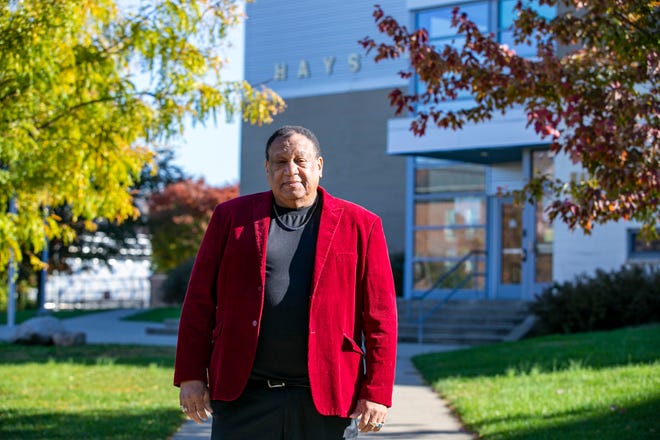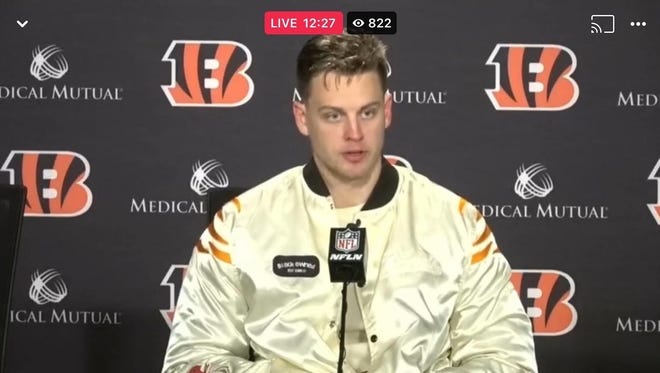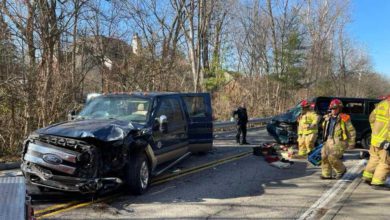

This year in Hamilton County, 15 juveniles have been charged with murder, more than were charged in the last four years combined. Why the increase? 'Kids Who Kill,' The Enquirer's series on juvenile violence continues with this conversation.
Dr. O'dell Owens was born and raised in Cincinnati. He then went to college at Antioch, then on to Yale and Harvard. Dr. Owens is a former Hamilton County coroner, former Cincinnati State Technical & Community College president, former medical director/interim health director for Cincinnati Health Department and, most recently, the Interact for Health president and CEO.
Enquirer reporter Terry DeMio: You've talked about this topic your whole career. What's your main message?
Owens: The higher the graduation rate, the lower the homicide rate.
With where we are this year, with teenagers charged with murder, what are some of your thoughts and insights about that?
When I was the coroner, one day the staff came to me and said, ‘We have a homicide.’ I said, 'I’m gonna tell you what’s the situation. There’s going to be a dead Black male. Drugs were involved. The male didn’t finish high school.' We opened his mouth and there was cocaine. He’d dropped out of school. That was the worst day of my life. That I could predict it. Things shift. The problem is, we have allowed a culture to develop where one handles adversity with a gun.
So many kids are using guns. How do kids get them?
Well first, either a kid’s gonna take a gun that he finds in his own home. Or they’ll go to their uncle’s home. Or get it from a cousin. People don’t look at their guns every day. People don’t realize it’s gone that day. Two, a kid’s going to buy a gun – because the guns are out there. The large number of guns are bought by girlfriends. Girlfriends have a clean record, they can go and buy a gun. And then thirdly, they’re stolen. They’ll be stolen from the home or in a non-relative’s home, or out of a car. People leave guns in their cars.
How then do we keep kids safe?
We don’t pay enough attention to the kids who do stay out of trouble, who came from the same (school) building and even from the same family. And I’ve had kids say to me, ‘Dr. Owens, how come we can’t get the help to stay out of trouble?’ I’ve had some letters from kids who say, ‘I wanna do right but I don’t know how. Who’s gonna help me?’ It breaks your heart.
Is there anything new about this?
Church numbers are down. Neighborhoods are no longer. Neighborhoods used to take care of the neighborhood. What you’re seeing is, you see these young kids, imitating what they see on TV. There is such violence now. They are cussing more. There’s more physical violence, they’re hitting more.
Do you see any light on the horizon?
Our salvation right now is the Preschool Promise. It provides vouchers for kids 3 and 4 to go to a quality preschool, and the early indicators from the testing, are, it’s working. Those kids were in preschool for most of the past two years. The other kids? We should be doing six days a week.
And I’ve said it for years, 20, 30 years: They can’t read. It should be: That’s all you’re going to do for the next year is learn how to read. Now, people will say, well, they’re going to be behind. They’re behind anyway! Let’s just stop and give them one skill that’s going to give them some self-esteem. And build from there.
If you raise the graduation rate by 20%, you lower your felonious assault rate by 10%. (Research generally supports the argument that more education leads to less criminal activity and violent crime.)
But you can’t focus just on the guns. You have to focus on the bigger issue.
You talk about the lack of family and community support. Why is that so important?
When we don’t wrap around these kids, the gang does. They will say, hey, and they put $5 in an 8-year-old’s pocket to go and get food. Later on, it’s a bit more money to carry a package. And it keeps going from there. You can’t just look at the homicides.
And they have a life I can’t even begin to imagine?
Yes. We have to drill down. The majority of people who are doing these homicides, the majority of these people don’t deal with tomorrow. There is no tomorrow.
I’ve had kids that say, when they were 16, ‘I expect to be either in jail or dead before I’m 21.’ So, what’s going to stop them from doing anything they want to do? They grow up in these areas, they don’t really leave them. They may go into another area of the city, but they don’t see people who are role models.
And kids, if they’re not reading by the third-grade level, you’re going to see them on TV. Kindergarten through third grade you learn to read. After third grade, you read to learn.
If they can’t read, they have no self-esteem.
I remember once taking four teenagers from the corner – 16 years old, and putting them in the coroner’s car. One of the things that they said to me was, I said, ‘What’s going to get you off the corner.’ They said, ‘Oh if I could get a job that pays $10 an hour.’ And I am saying to myself, $10 an hour? That’s not very much. But I took them to Kroger’s. We walked out five minutes later. None of them could fill out the application. They could not fill out the application. So where were they? Back on the street.”
So when I became president of Cincinnati State, I said, look, we have to have jobs for people who can only write their names. Only write. Their. Names.
One of the things we did was to list things that you could do not by courses, but by time. We have three months – 90 days – people would say, ‘Oh, I can give you three months.’ Well, I can teach you how to draw blood in three months, get you a job drawing blood.”
You’ve gotta deal with it in the short term: Get the guns off the streets. Add the federal charges for the guns. Be tough on them. But you’ve got to deal with the long term. Educating these kids. Feeding them. There are kids who’ve never had seconds. Never had two hot dogs. And if they’re hungry, they’re going to steal.
I’ve seen first graders who get a free breakfast try to stick a couple of cereal boxes in their pocket.
How does all of this make you feel?
You have to guard your feelings so that you don’t become complacent and just accept it.
So we’re failing?
Of course we are. People talk about a collective impact. There is no collective impact in Cincinnati. If we do, tell me why children go to bed hungry? Collective impact means everyone has a stake. We don’t have a collective will. Show me one social problem we have cured.
The above conversation has been edited for clarity. Enquirer reporter Terry DeMio recorded and transcribed the interview before editing. In some cases, questions and answers have been shortened and moved to make the conversations easier to follow and to remove unnecessary asides and repetitions.
Source link







